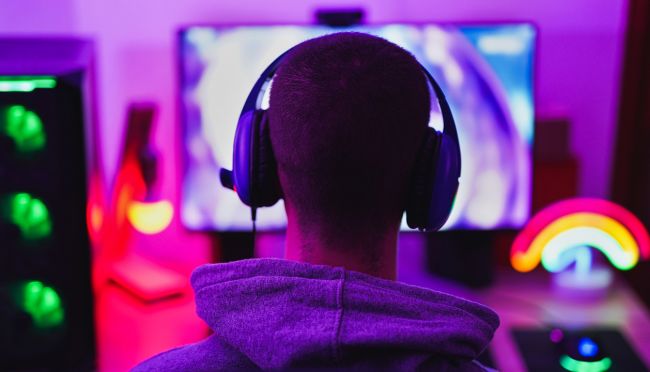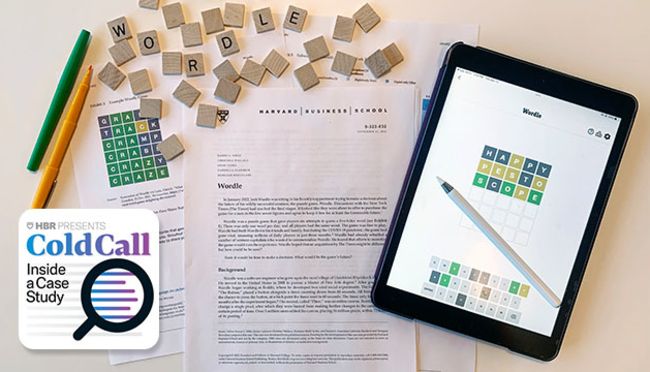
- 21 Apr 2023
- Research & Ideas
The $15 Billion Question: Have Loot Boxes Turned Video Gaming into Gambling?
Critics say loot boxes—major revenue streams for video game companies—entice young players to overspend. Can regulators protect consumers without dampening the thrill of the game? Research by Tomomichi Amano and colleague.

- 03 Jan 2023
- Cold Call Podcast
Wordle: Can a Pandemic Phenomenon Sustain in the Long Term?
Wordle went from a personal game, created by a developer for his girlfriend, to a global phenomenon with two million users in just a few months. Then The New York Times made an unexpected bid to acquire it. But will Wordle outlast other pandemic pastimes? Harvard Business School senior lecturer Christina Wallace discusses the journey of software engineer and accidental entrepreneur Josh Wardle in the case, “Wordle.”

- 17 Mar 2021
- Working Paper Summaries
Consuming Contests: Outcome Uncertainty and Spectator Demand for Contest-based Entertainment
Analysis of Australian Football League data shows that the uncertainty of game outcomes has a large, positive causal effect on stadium attendance. These findings show how competitive balance is important for contest designers in general and sports leagues in particular.

- 04 Jan 2021
- Working Paper Summaries
The Twofold Effect of Customer Retention in Freemium Settings
Many digital products offer “freemiums”: that is, part of the product for free, often with advertising, and an enhanced customer experience for payment. This research, in a mobile game context, shows the importance of recognizing the short- and long-term effects on customer retention when managing the tradeoffs between free and paid aspects of freemium products.

- 03 Apr 2019
- Working Paper Summaries
Learning or Playing? The Effect of Gamified Training on Performance
Games-based training is widely used to engage and motivate employees to learn, but research about its effectiveness has been scant. This study at a large professional services firm adopting a gamified training platform showed the training helps performance when employees are already highly engaged, and harms performance when they’re not.
- 01 Oct 2012
- Research & Ideas
Better by the Bundle?
Video game companies do it, fast-food restaurants, too. Why don't more companies bundle products and services together in one package at a bargain price? Research by Assistant Professor Vineet Kumar. Closed for comment; 0 Comments.

How Humans Outshine AI in Adapting to Change
Could artificial intelligence systems eventually perform surgeries or fly planes? First, AI will have to learn to navigate shifting conditions as well as people do. Julian De Freitas and colleagues pit humans against machines in a video game to study AI's current limits and mine insights for the real world.